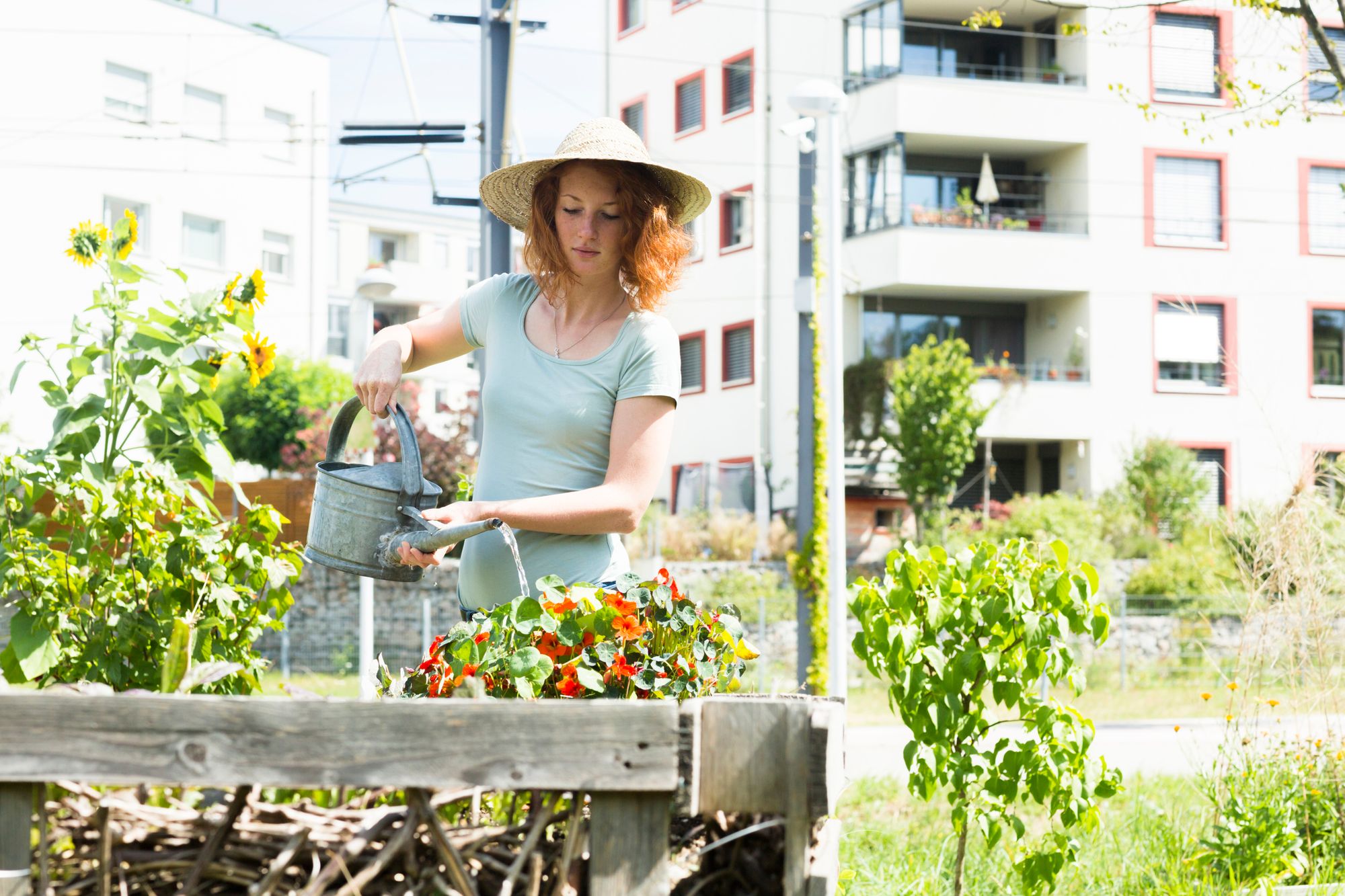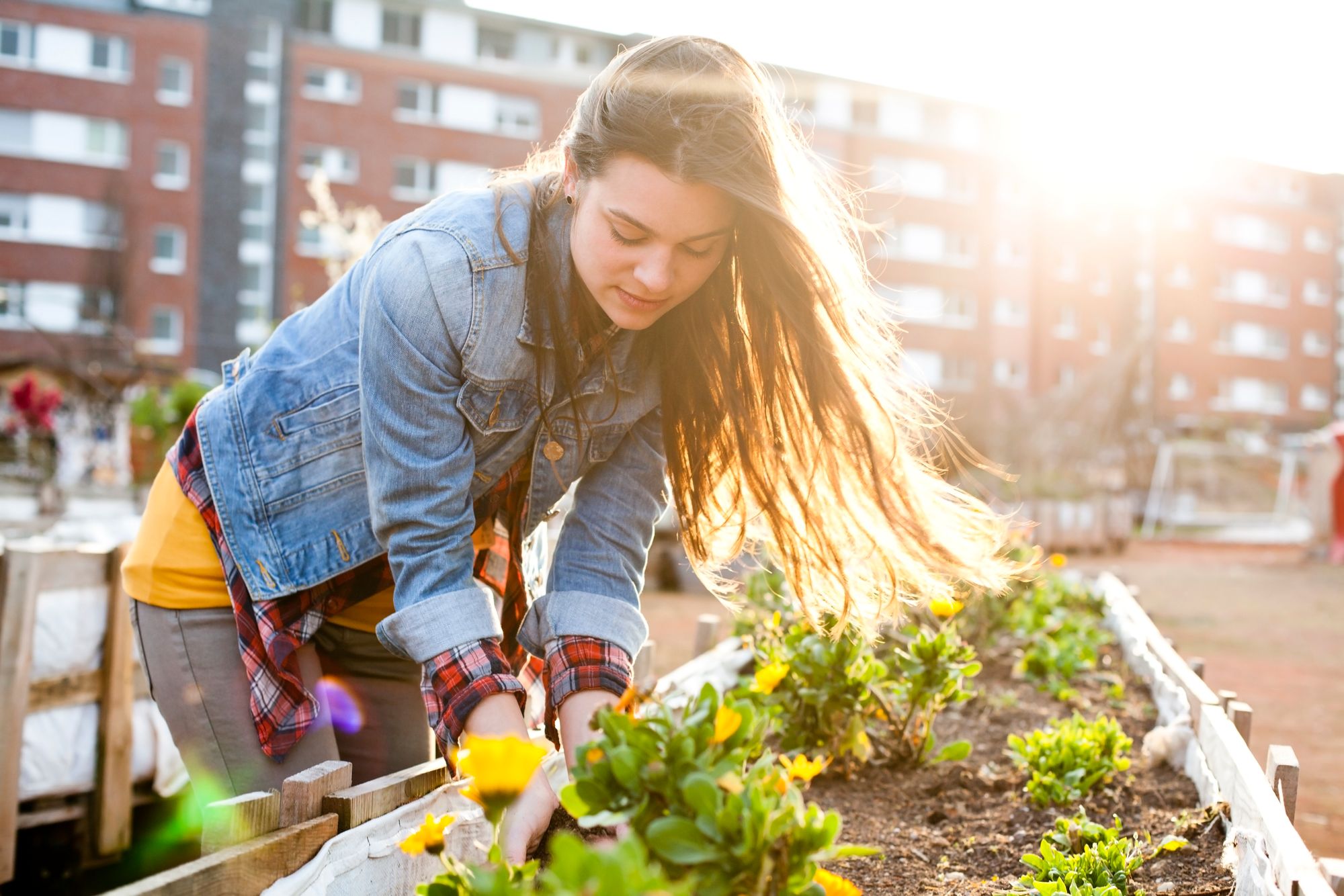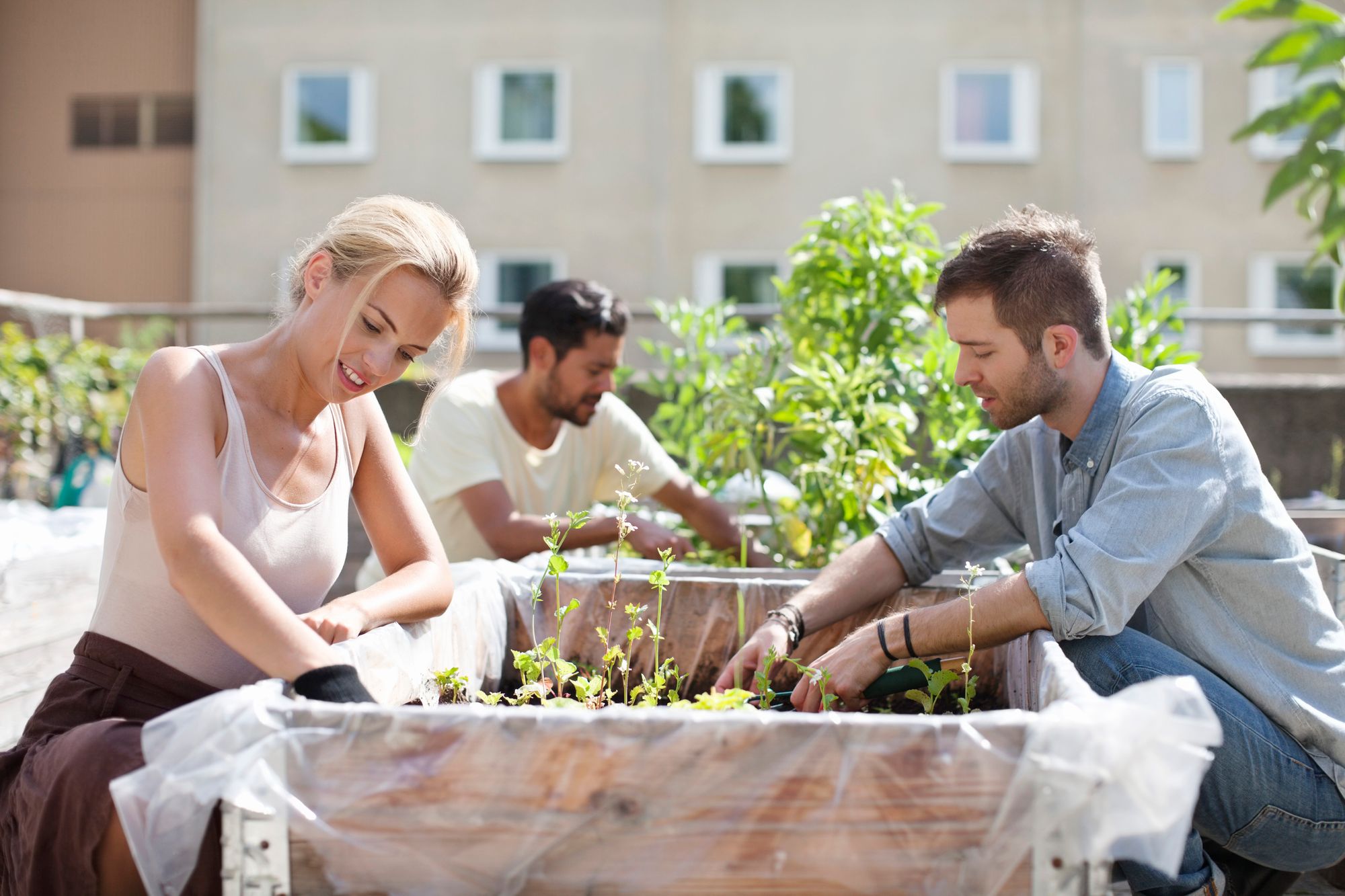Every year from 30 May to 5 June, European Sustainable Development Week takes place. This week promotes sustainable development through many initiatives organized throughout Europe.
These last few decades, we have seen an increased global awareness of the need to take care of our planet, Mother Earth. Today, we are more attentive than ever especially with regards to what we eat. For a long time, unaware consumers have been eating and drinking distant and disconnected products without hesitation or question. But now, common sense invites itself back onto our plates, pushing us to look for fresh, seasonal products that don’t need to cross oceans to reach our table.

Driven by necessity as well as quality, thousands of initiatives focusing on urban agriculture have flourished in the world. In a changing world where 53% of the world's population is urban, a trend that is inexorably accelerating is that agriculture is coming to town. Welcome to vegetable gardens that turn industrial wasteland into tomato fields, and office buildings that turn into vertical farms that grow your salads.
Paris, its Eiffel Tower, its Pompidou center, its Seine embankments and ... its bees. Did you know that the Notre-Dame of Paris’ 200,000 bees miraculously survived the fire that ravaged the cathedral on April 15th? The hives on the roof of the Sacristy produce 25 kg of honey each year. The Luxembourg Garden also houses hives you can visit, and the honey harvested from these bees is sold in the garden during the autumn exhibition every year.
Another example is London’s Farm Shops. Before, the area was home to abandoned businesses. Today, vegetable crops and small-scale aquaponics have multiplied. The project’s goal is to demonstrate that it is possible to produce food without necessarily needing a large plot of land.
In Spain, “citizen laboratories” have been developing for about ten years now. Commonly known as "Madrid citizen laboratories", they are the result of collective citizen initiatives, whose objective is to reuse abandoned urban spaces. Urban agriculture plays a key role in promoting neighborhood trade.
The Prinzessinnengarten is an urban garden located in the heart of the German capital. A hidden garden, known to regulars and well-informed tourists, the Prinzessinnengarten offers a variety of fruits and vegetables to buy or consume directly on site. Its creators, two friends from Berlin, created a movement of "guerilla gardening", the "war for gardens”.

These cities and many others have taken the courageous and visionary step of reintroducing spaces dedicated to agriculture into the urban fabric, which not only produce local food to feed the cities’ inhabitants, but also new, more friendly ways of living in cities by creating new ties. Values that are important to us, and that we cultivate during our exchanges.
Many of you are using your vacations to recharge your batteries and discover new destinations. Local products and cuisines are part of the experience, as are markets, restaurants frequented by regulars, and hyper-local sources of supply. When you prepare your Guest Book, remember to tell your guests all of this information; it really makes all the difference. Things that you do regularly give your guests a special taste of what life is like where you live, especially if they come from far away.

And why not, since you're there, take a closer look at these urban agriculture initiatives that flourish on social networks? Why not go talk to those people who have started to re-enchant concrete by growing zucchini and strawberries in the city? It’s a great family outing idea, a source of inspiration, and creative ideas to take home. Who knows, maybe you will become (or are you already?) an urban gardener who feeds his/her family and neighbors with the best of the best: freshly-picked fruits and vegetables that are organic, local, tasty, and lovingly grown.
Plan your exchange!